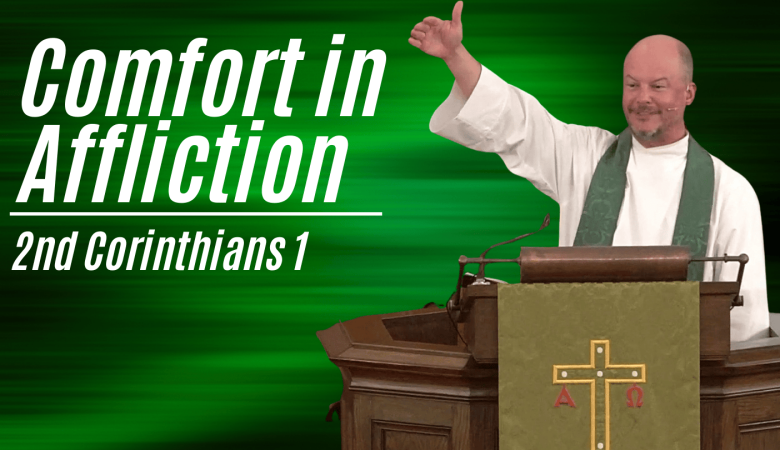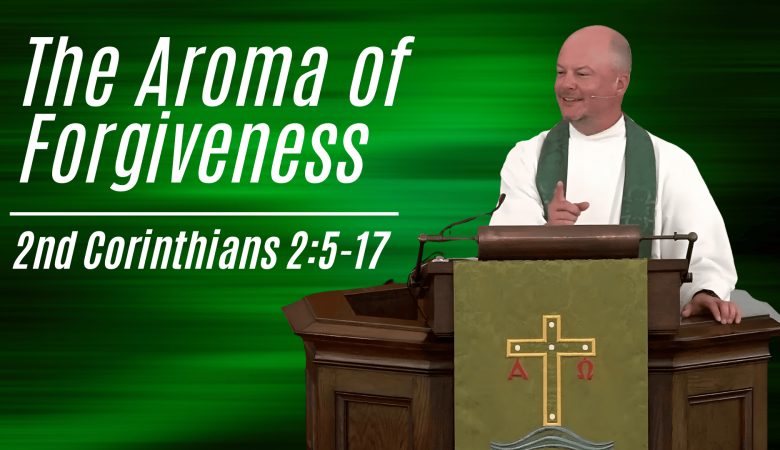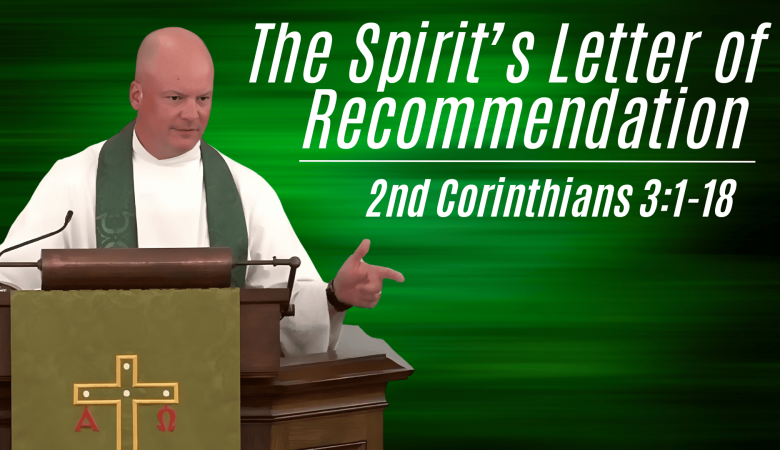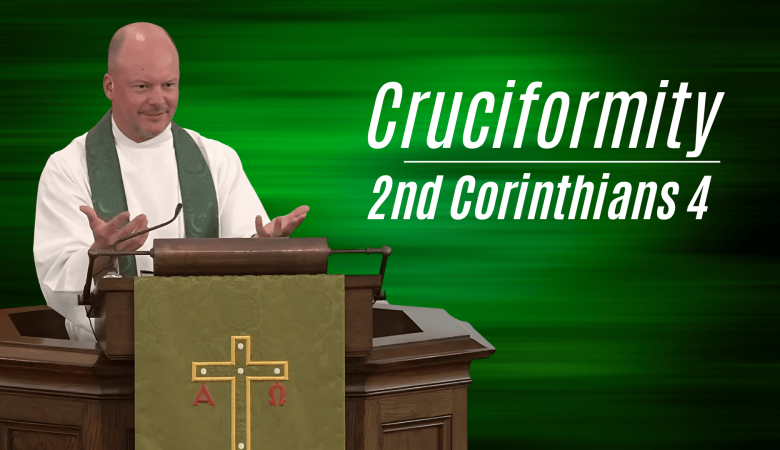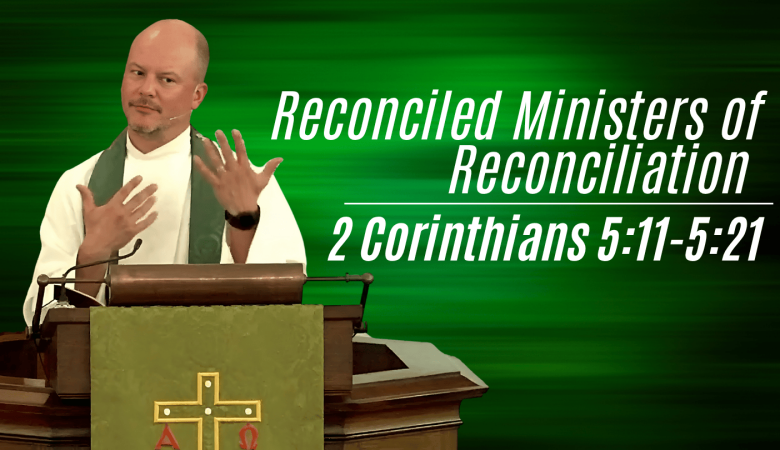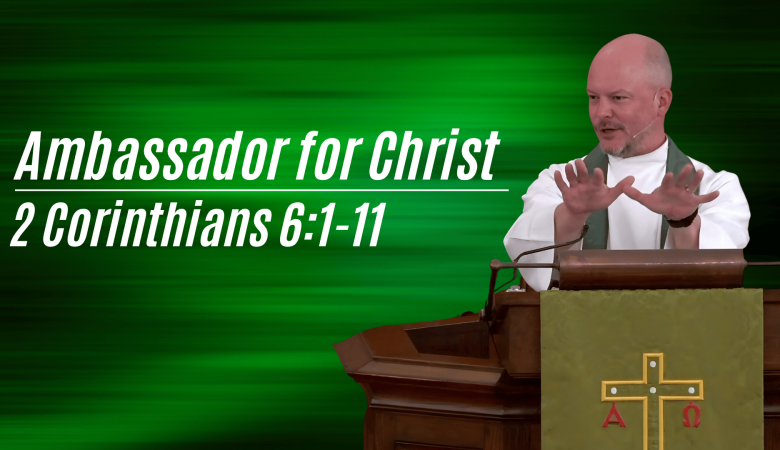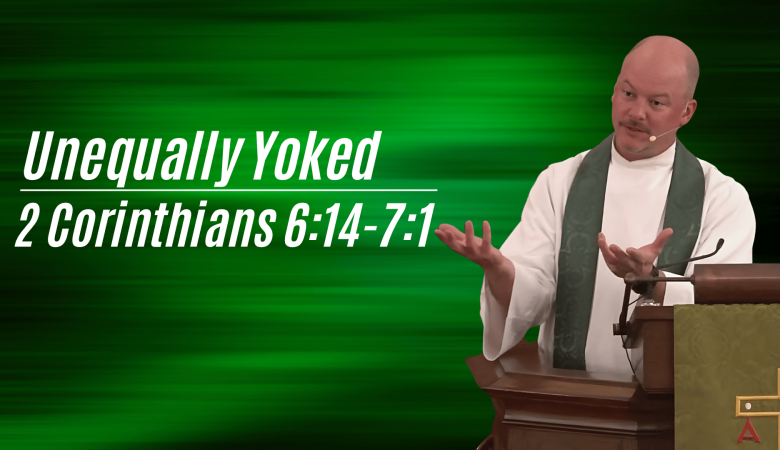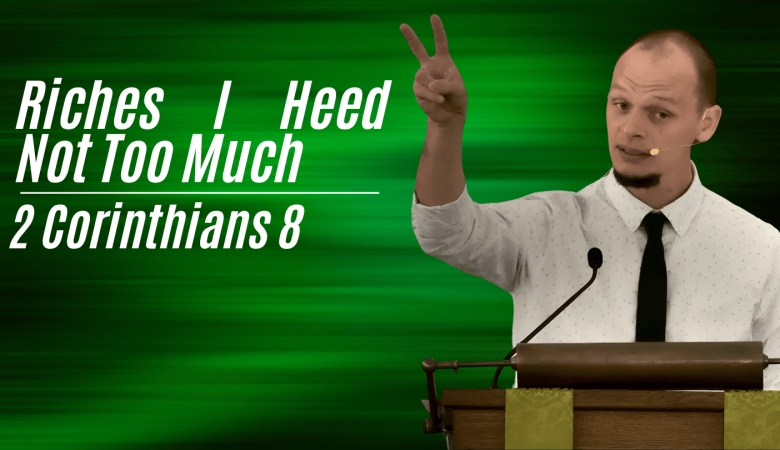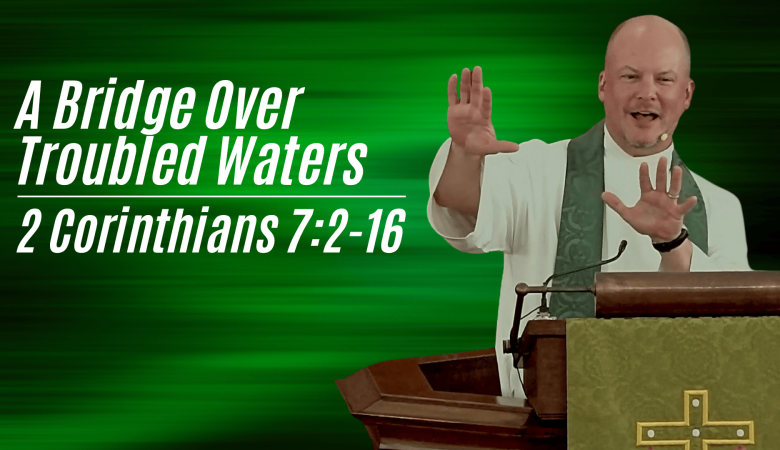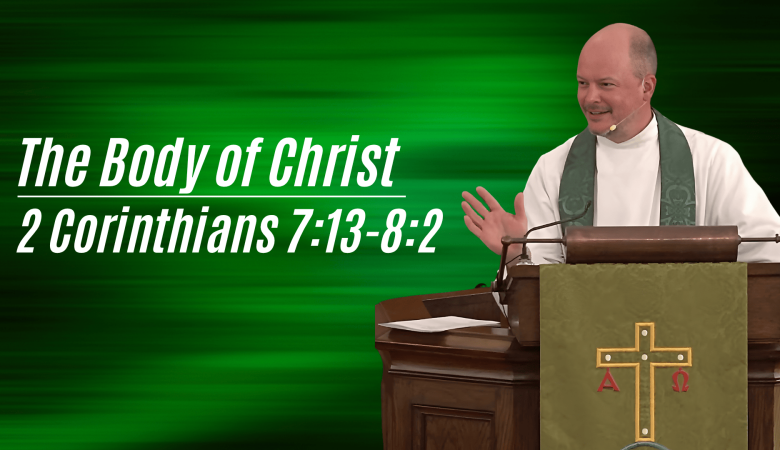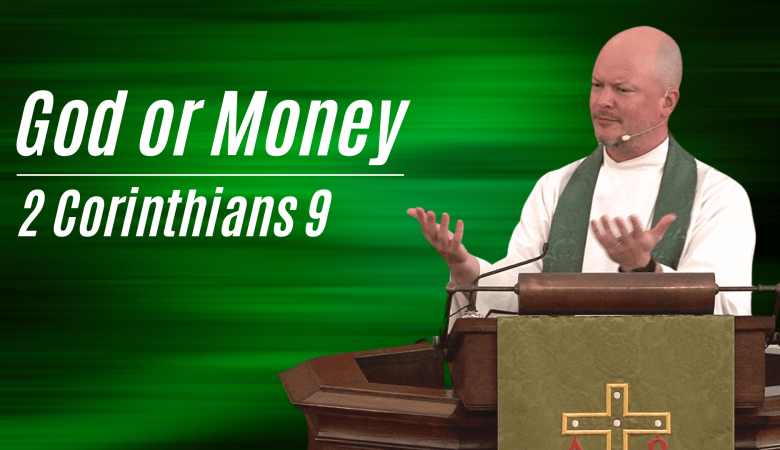Series: Power in Weakness
Plus Ultra
October 05, 2025 | Peter Rowan
Passage: 2 Corinthians 5:2-12
Summary
Is God good? The inquiry emerges most urgently amid suffering, when affliction causes our doubts divine goodness. In 2 Corinthians 4-5, Paul reveals how suffering and death paradoxically serve as God's preparatory grace.
Two Gospel accounts illustrate this tension. When Lazarus falls ill, Jesus deliberately delays two days before traveling to see him, allowing his friend to die and remain entombed for four days. Similarly, as Jesus journeys to heal Jairus's dying twelve-year-old daughter, he stops to heal another woman, and the girl dies before he arrives. Both stories end with resurrection, yet the question lingers: why allow such anguish? Both Lazarus and the young girl, though raised, continued living in mortal bodies subject to decay, affliction, and eventual death.
Suffering and death accomplish two crucial transformations. First, they focus people on their inner selves rather than external achievements. The sermon contrasts "resume virtues"—career accomplishments, possessions, and marketplace skills—with "eulogy virtues"—kindness, faithfulness, courage, and capacity for deep love. No funeral remembers someone's possessions or salary; instead, character and relationships receive honor. Affliction strips away superficial concerns and cultivates what truly matters.
Second, suffering redirects attention from the visible to the unseen eternal realities. Paul uses the word "groan"—a deep distress that expresses both present anguish and future hope. Creation itself groans for redemption. This groaning represents longing for a true home, a resurrected body, and complete restoration. The visible world proves transient; the invisible eternal world holds greater reality.
This perspective reframes suffering not as evidence against God's goodness but as his means of focusing believers on ultimate goods. Light and momentary afflictions prepare an eternal weight of glory beyond comparison. Suffering strips away false identities built on work, eloquence, physical abilities, or relationships, forcing dependence on Christ alone.
The historical illustration of Spanish coins captures this vision. Originally inscribed "ne plus ultra" (no more beyond) at Gibraltar's pillars, marking the known world's end, Spain later changed the phrase to "plus ultra" (more beyond) after discovering the New World. Similarly, believers must recognize that far more exists beyond present circumstances—an eternal reality prepared by God that surpasses imagination.
Martha's response to her brother's death models this tension and faith: "Lord, if you had been here, my brother would not have died. But even now I know that whatever you ask from God, he will give you." Christ's own resurrection validates this hope, promising that what proved true for him becomes true for his followers. Walking by faith rather than sight means holding loosely to this world's allurements while clinging to resurrection hope, trusting that present afflictions serve God's transformative purposes in preparing believers for unimaginable glory.
Transcript
We pray again for us, Lord. Now may the words of my mouth and meditations of our hearts be pleasing in your sight. I pray that we would heed these blessings, these benedictions you give over your disciples. There in Matthew, it seems so foreign to us that we might see that it is often that we draw closest to you when we are poor in spirit and when we are persecuted and when we are afflicted, when we mourn, for it is new where we find comfort and joy and hope and peace and life abundantly. Teach us these things this morning, Lord. Amen.
All right, so this fall, we have been in the book of Second Corinthians, and what we've been doing is we've been going through it chapter by chapter. And I felt a few times now that that has caused me to gloss over a few things. So while I think it actually does largely work, I'm going to take just part of Second Corinthians 5 this morning. And the end of chapter four, here's part of what happens. You know, Paul's giving you this book, and it's all bleeding together. So often you kind of have to decide, well, where do I start from? Where do I begin? And so we're going to actually begin with part of what we looked at last week, and then we're going to go into the first half of chapter five with that.
Let me pose to you one of the great questions of religion. Is God good?
I'm not going to answer that question entirely, not fully, but my guess is that even if you didn't come into this space this morning, this asking that question, which probably many of you did, no doubt it's a question that you've thought of, and particularly you thought of it in the midst of your suffering or the suffering of a loved one who you hold dear. And no doubt it's a question that many of your neighbors ask when they're confronted with the idea or the reality of God, his goodness.
Think with me of a story of Jesus that's told for us in John, chapter 11. Okay, so there's these two friends of Jesus. They're sisters. Their names are. Yeah. Which one goes first? Martha and Mary. Mary and Martha. And they send word to Jesus saying, lord, he whom you love is ill. He whom you love is ill. Jesus knew they were talking of their brother, another of Jesus, dear friends, Lazarus. And when Jesus heard this, he said, this illness does not lead to death, but it's that the glory of God might be revealed. And then verse five of that chapter, it says, this Now Jesus loves Martha and her sister Mary and Lazarus. So when he heard that Lazarus was ill, he stayed two days longer in the place where he was.
What, two days longer? Doesn't he love them? Doesn't he love him? Doesn't he know that he's ill? Is he good? Is he allowing Lazarus to go through more pain, his sisters, whom he loves, to suffer anguish? And he waits two days to leave.
Then when he does finally go through the long journey. If you know the story, what we're told is that when he arrived, his friend whom he loved had been in the tomb for four days.
Think of another story from Luke chapter eight. There, there is a ruler of the synagogue. His name is Jairus. And he falls at the feet of Jesus, which is the most understandable thing. And it says that he implores him. He doesn't ask him, he's begging because what it tells us that his little daughter, his 12 year old daughter is dying. I have a nearly 12 year old daughter, would have been falling on my face, begging. And then as he begins to go to Jairus House, this woman just touches the hem of his garment and he stops like, just let her touch your hem. Be healed. Go quickly. He calls out to her and he heals her. And then while he's talking to her, a messenger from Jairus House comes and he tells him, your daughter is dead.
Imagine hearing those words. If there are any words which I fear most to hear, those may be them. Daughters dead. Imagine the weeping. You know those two stories. You know that, that in the first story we're told that, that Jesus wept also. Shortest verse in the Bible, right? Jesus wept. And if you know both those stories, what you also know is that Lazarus and the young woman were both raised to new life. Is God good?
Isn't that question most often and actually really understandably asked in the context of the suffering that we experience? And think about this, right? Lazarus and this little girl, 12 year old, while raised, no doubt still lived in these bodies with, with our constant move towards corruption and decay. With minds that don't work often as we desire them to, with ailment after ailment seemingly coming one after the other. No doubt their bodies continued along the path of suffering. They were likely afflicted and perplexed and persecuted and struck down. They likely went from one experience of weeping on to the next. Because often this is how it works, right? You go from being afflicted to perplexed to struck down. There are tastes of goodness and grace in the afflictions of this life. As they experienced. And yet the afflictions seem to keep coming. They seem to come one right after the other.
The Sorrowful Father. I mean, think about just this little story, right, that we have in Luke, chapter 8, the Sorrowful Father who's imploring Jesus is followed on then by the woman who's had 12 years of a discharge of blood, who's been ostracized from the community, afflicted, then perplexed, then struck down and persecuted. And then it goes on and the girl's dead and she's raised to new life. But no doubt the story continues, a story of affliction in Paul's life and very likely in your life. Affliction is followed by mental anguish. Paul says perplexed. But we know this is a mental. I mean, the dynamic of being put yet again in prison, the dynamic of going to yet another community and being riots breaking out, mental anguish followed by persecution, followed by being struck down. And yet Paul has told us at the end of chapter four that this light, light and momentary affliction is preparing for us a weight of glory beyond all comparison.
And I imagine that the Corinthians were honestly a lot like you and me. They were very, very likely a lot like Martha, probably, you know, when Jesus comes to Bethany, the town where they lived and in their house, this is what she says. First, we'll say what she says later. Second. But first she says, lord, if you'd been here, if God had been present, if you had actually seen what was taking place, my brother would not have died. Lord, if you're really kind of, if you're real, then certainly he wouldn't have experienced this affliction. Lord, if you knew, if you had just a sense of how bad and how sad the situation is, or if you're really good, as we see the suffering of the world and we see of those we love, we see the death of those we love, we see our own experiences and we wonder.
The Corinthians, as I've said, were inclined towards the good life. Last week I talked a little bit about what a prosperous city Corinth was, just partly, just where it's located and the trade route from the north to the south of Greece and the Aegean Sea and all of that, and then the great plain that was fertile and the springs of the spring water that flowed up in the area. It's a very prosperous place. And it seems as though between the letters, some leaders had come in. Paul talks about them quite a bit in this book, who had come in and basically Said it's the good life that's on offer. The eloquence is what's most compelling. Your well being is what shows the goodness of God. Showing for strength, prosperity and speaking against weakness and suffering. And certainly what we can piece together is they questioned a teacher like Paul who had experienced all of this affliction, all this imprisonment and shipwreck, mental anguish, all that. And they dismissed him as not being truly from God because how could God allow that?
But Paul doesn't just say to them, as he did last week, that he's this fragile jar of clay. And because he's this fragile jar of clay, we actually see the strength, power of God made perfect in his weakness. But he actually goes on in this section that I want us to look at this morning, he says that our affliction in this life is actually preparing us for something far greater than we would ever imagine. And part of what we're inclined to do is hold on tight to this life. And he wants to invite us to say no, there is more, there's more. How you get. The more is you've got to learn to hold on loose. Now suffering and death in a way can even be God's grace, his preparatory grace for what's ahead. And why this is the case is because suffering and death so often focus us.
You know, they cause the things that don't matter to recede into the periphery. And here at least he says they focus our inner selves, our inner world and the unseen world. The first, they focus our inner selves. If you have your Bible to that passage, still open it up. And chapter four, verse 16 says, so we do not lose heart, though our outer self is wasting away, our inner self is being renewed day by day.
And I think a lot of you know this dynamic, you know that it can happen that we're more focused on the deep things that matter when we are not when we're experiencing the blessings of this life. But actually it's almost, it's really the opposite. So often we actually focus on the deep things that matter when we are going through the trials and afflictions and we come close to death. Death and suffering often actually do work in us for the transformation of our lives. We know that death is an outer transformation, right? The, the ceasing of breathing and stopping of our heart and those kinds of things. But it's so much an inner transformation. And it's not just for those who are experiencing it, but for those who witness it too. It's an inner transformation.
So many of you Know that it is when you're brought low, when you walk through suffering and trial, that you're transformed. You find new loves, new affections, and it happens often in this context of suffering and death. Some of you are familiar with David Brooks. He's written a number of books that I would recommend to you. He's written and he's spoken a number of times on what he calls eulogy virtues and resume virtues. Maybe some of you have heard him or read him talk about this. He says eulogy virtues are the quality of character that are mentioned at your funeral. Things that people say when you aren't around to hear what they're saying. People say when you aren't there to listen. On the other hand, resume virtues are the list of skills that we bring to the marketplace, the list of achievements you have have to promote yourself, the accomplishments in education, the career that you've had, the stuff you've acquired.
You've probably heard it said, maybe you've seen the bumper sticker, he who dies with the most toys wins. But we actually know, if you've been to a funeral, you have never heard a eulogy that says, man, you should see the dirt bike that he rode. He had the coolest mountain bike ever. No, no. And we know that it's actually just silly to even think of it. No one at your funeral is talking about what car you drove. No one at your funeral is talking about that suit that once just fit you so well, it's good you brought it to the tailor. Eulogies are not spent talking about how much money you acquired in this life. They are not.
Instead, eulogy virtues are the virtues that speak to our inner selves. Were you kind, full of compassion, faithful in your relationships, honest in your dealings with others? Were you courageous and brave? Were you a person capable of deep, committed love?
And, let's be honest, much of our life, which makes sense because this is much of the world that we live in, and this is our education system, and it's just kind of the air we breathe. Much of our life is spent on our resumes, listing out our accomplishments we know we can do. The suffering and death have a way of stripping that aside and focusing us on what matters. Think about this. You know, if you look down again at verse 16, it starts, for we do not lose heart. If you go down actually to chapter five, verse six, it says, so we are always of good courage. Verse 8, yes, we are of good courage.
There's something, even in the context of Paul's suffering here, that is producing in him These eulogy virtues, this strength that is an inner strength that the resume virtues have little to say about. And we know this. This is not just a Christian experience. This in many ways is just a human experience. Suffering and death focuses you. Suffering and death focus our inner selves on the things that matter.
Which is to say as a side note and sort of an application. If you want to grow in faithfulness, if you want to grow in kindness, if you want to put on these deeper character traits that actually last. Attend funerals, sit with the suffering, go to the hospital, sit beside someone of older age who has walked the road long. You will find that you hold on to your possessions and to your resume much more lightly.
I was actually sitting with Nevin in the hospital a couple weeks ago and he's nearly 100. I'm 43, very tempted to pursue the resume virtues. Believe me, it is a gift to sit with a 99 year old who wants you to pray for them and read scripture to them. It is sit with one another in one another's pain, your suffering. Each time you engage with death, whether the small deaths that we continue on in this life or ultimately death itself, the world becomes the world about us. The physical world about us becomes a little less real and the eternal world a little more real.
Which leads to the second thing here that's going on. Suffering and death don't just focus our inner selves. They do that on the things that matter most, but they actually focus us on what we can't see. The unseen. Verse 18 of chapter 4, it says, as we look to the things that. As we look not to the things that are seen, look not to the things that are seen, but to the things that are unseen. For the things that are seen are transient, but the things that are unseen are eternal. Paul says, look, focus your attention on the unseen. If we keep going on though, in the beginning there of chapter five, in that first paragraph, we see a word repeated. And I think this is a helpful word. And it invites us into these two images that Paul then kind of talks about. And the word is this. The word is groan. Verse 2 says, for in this tent we groan. Verse 4 says, for while we are still in this tent, we groan being burdened.
And that word there, the word in the Greek is stray, not so. Think of the word to strain, strain. And it communicates this sigh of deep distress, right, this groaning. But in the Old Testament it's also used. It's not just a groaning, it's not just a sigh in itself. It's often Used as a sigh that leads to prayer, which is to say it's this groaning that then expresses itself in a hope, a desire, something to come about, something to be changed.
Some of you will know In Romans chapter 8 it says that creation itself is groaning. The same root word, it has a little suffix on it in Romans chapter 8. But these are anticipatory groans. Creation is groaning for the sons of God to be revealed. It says, right, the children of God to be who they are made to be. So this is a groaning that is experiencing this suffering and this reality of this life. But what it's saying is, God, bring something else about. Show us what you're going to do. Bring about your goodness.
What's it groaning for? What's it desiring? First? First thing is that it's desiring our true home. Okay, so verse two again, for in this tent we groan, longing to put on our heavenly dwelling. We're in this tent which is a dwelling, right? We're in this tent we groan, longing to put on our heavenly dwelling. I read this week in one of the commentaries I was using to study this that a pastor received a letter from a 9 year old girl in his church and it read, dear Pastor, I hope to go to heaven someday, but later than sooner. Love, Ellen and Ellen. Ellen speaks for most of us.
We want things to be right, we want things to be good. We have a deep sense that we were made for more. We have a desire for things to be as they should. And yet we've often made actually this tent which almost has this like flimsiness about it, our home. And yet Paul says it is often in suffering and in death that we are focused not on the seen tent which can call out to us, this is where you belong, but on the more permanent structure, the more real thing, further up and further in reality of God's home for us.
Keep in mind here that Paul is not talking about a home that doesn't have physicality to it. We're a bodiless home and we were made by God as physical beings. Verse 1 says, for we know that if the tent that is our earthly home is destroyed, we have a building from God, a house not made with hands, eternal in the heavens. He's saying it's more, it's even more solid than you would think. It's more permanent, it's more lasting. So this groaning for the unseen that suffering and death help us focus on is for our true homes. It's for the place where you were made to be. Say here the Things that you can see, they're transient, they're passing. Things you want to grab onto now will one day be no more and they will be surpassed by something far, far greater.
Verse 4 tells us, for while we are still in this tent, we groan being burdened, not that we would be unclothed, but that we would be further clothed so that what is mortal may be swallowed up by life. He's saying what's in store for you is actually a deeper life, a greater clothing. Verse three, he had said that we don't want to be found naked and he says that because you don't want to be exposed to shame and the judgment of sin. But he doesn't want to be, he doesn't want to clothe himself. He doesn't want to put himself forward and say, hey look, this is what I've done. He says, I want to be clothed with a more eternal thing that is life itself, with God himself. Say he's getting this image back to the garden. He's getting to the idea that one of the things that suffering does is it exposes our need or exposes our need for God himself to clothe us. For the righteousness of Jesus focuses us on putting on the imperishable rather than the perishable, on focuses on putting on the immortal rather than the mortal, the things that are unseen rather than the things that are seen. Paul is not only longing for a resurrection home where all things will be right, but a resurrected body where he will be right.
And this is what suffering and death do for us, transform us. They give us a new vision, a new focus, which if we get back to the beginning of my sermon, it is often exactly at the place where we most doubt the goodness of God, that God in his grace focuses us on that which is ultimately good. That so often we start to say, how can he be good if he allows this? How could he be good if he allows his friend to go through such suffering? How could he be good? Oh, 12 year old Jairus, daughter to Terry, when this child is dying, it can be good. If it's true that this light and momentary affliction is just preparing for us something that is so much better. It's a grace. Because so often as we experience this, we lay aside the things that don't matter. And when we do that, we actually can sit before, stand before the judgment seat of God, because we have put aside the allure of this world and we have clung to our resurrected Lord Christ himself. Suffering and death, they cause us to walk by faith and not by sight. Suffering and death often strip us. They take away the things that we've built our identity on. You know, think of the teacher here, their eloquence, their letters of recommendation. Think suffering and death often strip us of the places of our identity, our work.
What do we answer? What do you do? We answer with our work. They strip us sometimes of our voice, place our identity upon how we can speak to others, how we can speak in front of others, how we can sing. They strip us sometimes of our play, often something that people put their identity in. Sometimes suffering and death strip us of our relationships, which is so often where we find our primary identity. What they do is they strip these things away. Where we must focus on the ultimate thing, how we engage with God himself. Often what happens is the things that matter most come into focus. And we see when they come into focus that they are far greater than we ever expected.
I'm hesitant to say this because it's overused, but in a very real sense, we let go and we let God. We hold loosely to the things of this world and we grab onto the resurrection that is our only hope in this world and the next, that we belong to our Lord Jesus.
Let me end with an illustration that I read. When Spain had extended its conquest to the end of the known world at the time, which is to say they controlled both sides of the Strait of Gibraltar. Those fabled pillars of Hercules, Right. On their Spanish coins were those pillars. And then there was a scroll inscribed with the Latin words ne plus ultra. Which is to say, no more beyond. Say we've found the known world and sailing out of this strait, there is nothing outside of it, nothing beyond. It's the gates to the ends of the earth. But of course, now we know that was kind of myopic, rather nearsighted, isn't it? Kind of like how we live our lives. Nothing beyond what I can grab onto right now. There's nothing beyond what I am experiencing in my body right now.
Of course, we know how silly that coin is. And to their credit, they did, too. After the discovery of the new world, they wisely changed that phrase on those coins. It was just plus ultra. More beyond. There is more beyond what we know and what we see. And it is far greater than you imagine. It is God preparing for us an eternal weight of glory. Think back with me to Martha. Okay. Lord, if you'd been here, my brother would not have died. And I wonder how much suffering she had already experienced in her life, because then she followed it up. But even now, Even now I know that whatever you ask from God, he will give you.
God gave her her brother back and I bet her faith grew like wildflowers that day. But then Christ himself rose from the dead and he said, what is true of me will be true of you. He's the ultimate plus extra ultra, rather more beyond. But he says that's true for you. There is so much more beyond. There's so much more beyond this life. Is God good? One of the reasons we doubt this is because of our suffering, because the reality of death. Brothers and sisters, Christ conquers that for you. His resurrection is promised to you. And we are told he is preparing something for you that is so far beyond your imagining. That is the hope you have in Christ. Brothers and sisters, beyond all comparison, we pray.
Lord, you know, Lord, you know better than any of us, you know better than myself how inclined I am toward the things of this world, towards the things that are seen, and how my own ups and downs shape my life. So much, God, I thank you for this. Do not lose heart, this call to courage in the midst of this section here on suffering. I thank you for my own heart.
Lord, I pray that we as a church would see that with you we may be afflicted in every way, but not crushed, perplexed but not driven to despair, persecuted but not forsaken, struck down but not destroyed. Because you, the resurrected Christ, are with us. That we may. We may say, to live is Christ, but to die that's gain. Because our. Our minds and our hearts and our eyes and our whole being has been focused not on the things that are seen, but on the things that are unseen. We walk by faith and not by sight.
God, I pray that we would be a church that welcomes the opportunity to sit with one another in our affliction and our suffering and our pain. God, we know. We often don't know what to say or what to do. I pray that we would learn to sit with one another, to be and in that, Lord, that you would bless us.
God, I pray for all of us here in this space, this time that we would hold lightly to the things of this world and cling to the empty tomb of Jesus. God, that we would have a deep and abiding faith that what Paul says is this light and momentary affliction, which doesn't remotely seem light or momentary, would in the grand scheme of what you are doing, be truly light and momentary because you are preparing for us eternal weight of glory beyond all comparison, God, move in us in these ways. May we be found holding fast to the things that never age While so often we are invited to grab, to hoard to hold. May we hold fast to the cross and to the empty tomb. In Jesus name we pray. Amen.
Series Information
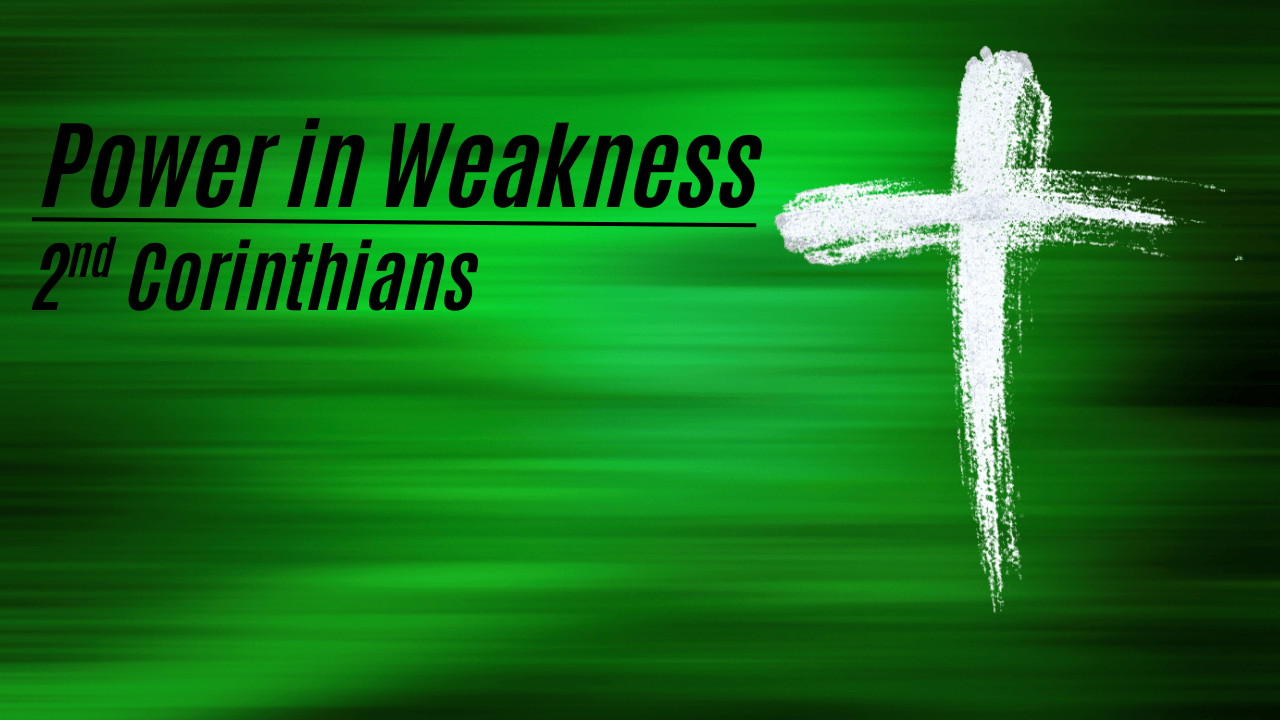
Second Corinthians is Paul’s defense of his love for and love toward the church in Corinth. Paul’s defends his apostolic ministry against critics who question his authority. He recounts profound suffering—beatings, imprisonment, near-death experiences—yet refuses to boast except in his weaknesses. Through personal vulnerability, Paul reveals Christ's power working most effectively in human frailty. He describes his mysterious "thorn in the flesh," where God's response becomes the letter's centerpiece: "My grace is sufficient for you, for my power is made perfect in weakness." Paul embraces this paradox, demonstrating that divine strength flows through broken vessels. His authenticity and struggles validate rather than undermine his ministry, proving that God's power shines brightest through human limitation and dependence.

